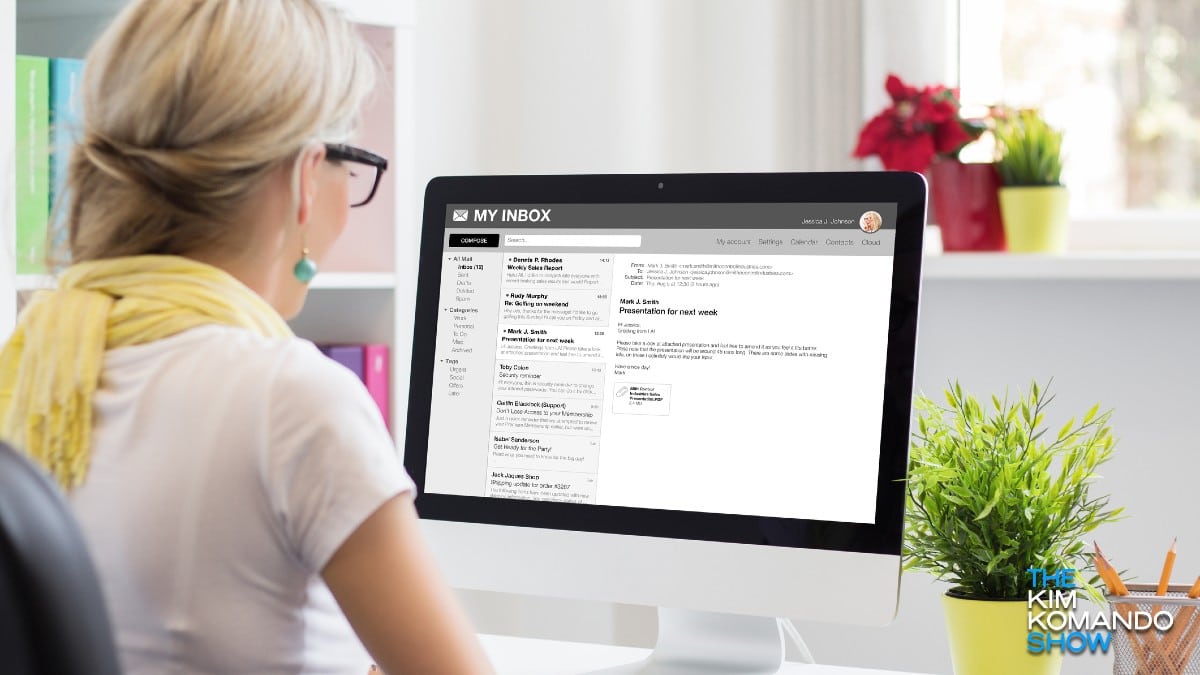Right now, I’m sitting here beaming because my inbox is at zero. Really! Did I read and reply to every single message? Well, no. Before I took back control, I had 409 unread messages. But I have a trick to starting each year with a clean slate. You can do it, too!
Clear out your inbox
Drowning in emails? Here’s a surprisingly easy fix to begin the New Year right: Archive your inbox. It’s like a magic wand for your digital clutter!
What’s email archiving, you ask? Picture this: a digital vault where every email you’ve ever sent or received is safely stored, complete with attachments. They’re out of sight but never out of reach. No more endless scrolling through a jam-packed inbox!
You could try sorting emails into a maze of folders, but let’s face it, who has the time for that? Archiving is a smart, hassle-free solution. It’s a New Year’s gift you owe yourself. A couple of clicks and voilà — your digital world just got a whole lot tidier.
So, are you ready to beat the email bloat? Here’s your quick-start guide to mastering your inbox with the power of archiving. Say hello to a streamlined, stress-free 2024!
Follow these steps to archive in Gmail
- First, open your Gmail account on a computer and click the Inbox folder on the left.
- Above your emails, there’s an empty checkbox. Click the small arrow next to it, and choose All. This selects only the conversations visible on the screen.
- To select all your emails, click Select all (number) conversations in Inbox. Then, hit the Archive icon (folder with a downward pointing arrow).
Gmail will take some time to process your request. Be patient. You may have to do this step a few times to get everything.
Once you’ve archived a message, you can hit All Mail to the left, right under Inbox and your other email folders to find it. Your best bet is to search by a term you know was in the email or by the sender.
Using Apple Mail? Here’s what to do
- Open the Mail app on your Mac. Look through your inbox or other folders and find those emails you want to stash away. Click on an email to select it, or if you’ve got a bunch, hold down the Command key and click on each one you want to archive.
- Got an ‘Archive’ button (looks like a little box) on the toolbar? Just click that, and you’re golden. No button? No problem. Click ‘Message’ at the top, then choose ‘Archive’ from the dropdown. If you’re all about shortcuts, just hit Control + Command + A and those emails will zip right into your archive.
- Where did they go? Head over to the ‘Archive’ folder. It’s in the sidebar under ‘Mailboxes.’ Got more than one email account? Each one has its own Archive folder.
When you need to find those emails again, just click on that ‘Archive’ folder anytime. All your archived emails are there, ready when you are.
Got a Yahoo email? Here’s what to do
- Hold your mouse over Inbox in the left panel, and click the dropdown arrow that appears. From the options, choose Clean Your Inbox.
- A pop-up window will appear. Choose Archive emails. Be warned, this might take a while.
Want to take a message out of the archive? Open the Archive folder, tap on the email you want and select Restore to Inbox.
How to archive emails in Microsoft Outlook
Microsoft Outlook doesn’t put archived messages into a separate folder. Instead, they’ll go straight to a data file you can access whenever you want.
- Select File > Cleanup Tools > Archive, then hit Archive this folder and all subfolders. Choose the folder you want to archive. In this case, your inbox.
- Under Archive items older than, enter your date. For example, you may want to archive everything before 2012. Then, check the box that says Include items with “Do not AutoArchive.” Click OK, and you’re good to go.
You’ll see emails disappear from your inbox and subfolders. Now they’ll be under the Archives heading.
Worried you missed something?
Remember, archiving is not the same as deleting. It’s like putting stuff in a storage box — out of the way but there when you need it. It’s a great way to keep your inbox looking neat without losing anything.
Here’s my theory about emails I haven’t read or replied to: If it’s really important, that person will email you again — or text or call.
As a side note, remember that even if you archive emails, they can be subpoenaed for legal cases. I don’t give legal advice, so it’s best to consult a lawyer if you have any questions about this.
